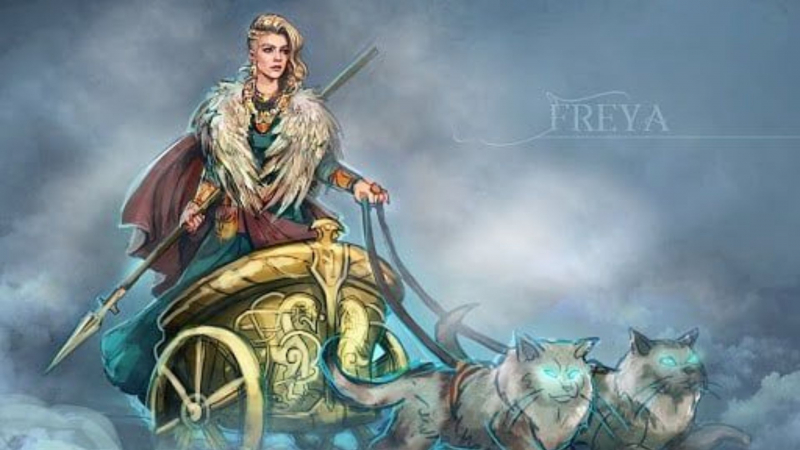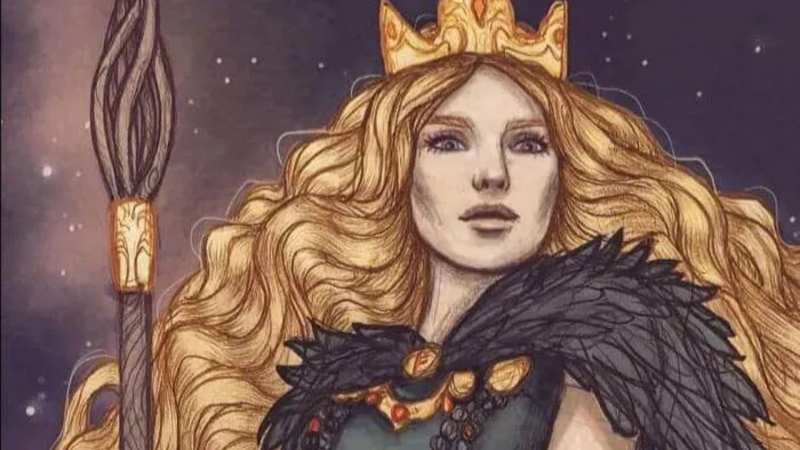Freyja

Freyja is definitely one of the most famous Norse goddesses. Freyja is a goddess of love, fertility, sex, war, gold, and seir in Norse paganism (magic for seeing and influencing the future). Freyja has a cloak made of falcon feathers, rides a chariot drawn by two cats, is escorted by the boar Hildisvni, and owns the necklace Brsingamen. She is the mother of two girls, Hnoss and Gersemi, by her husband R. She is a Vanir, like her twin brother Freyr, father Njörr, mother, and father. Modern spellings of the name that are derived from the Old Norse Freyja include Freya, Freyia, and Freja. Half of those who lose their lives in combat are given to Freyja in her celestial field, Fólkvangr, under her authority. The other half enter Valhalla, the hall of the deity Odin. She is located in Sessrúmnir, a hall in Folkvangr. Freyja is a fertility and love goddess who lends her feathered robe to other gods for their benefit. She is also regularly sought after by powerful jötnar who want to wed her.
In Swedish literature, for instance, Freyja was portrayed as a Scandinavian version of the Roman Venus in the contemporary era. The goddess may be connected to romantic love or, on the other hand, be equated with "desire and potency.” In his Fredman's Epistles from the 18th century, Swedish poet Carl Michael Bellman referred to Stockholm prostitutes as "the offspring of Fröja." Britt-Mari Näsström notes that Swedish Romanticism in the 19th century placed more emphasis on the idea of "the pining goddess, sobbing for her husband" than it did on Freyja's sensual attributes. Today, Freyja is mostly revered as a goddess of fertility, abundance, and beauty by many Asatru practitioners. Baking items with a connection to love in some form, such as chocolate, is a typical ritual for modern Freya worshippers. Freyja is also requested to provide security, typically in cases of domestic violence.











